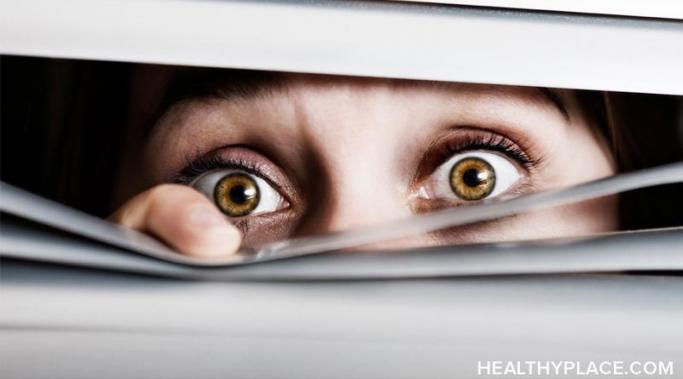I was asked about how I have continued to work even through major bipolar storms. I found when I wrote about this topic, pages and pages were filled, so we’re splitting it in half. Today is part one: how to work an office job with bipolar disorder.
Some of you know I’ve had office jobs in the tech industry for most of my working career and only recently made a shift. And in those years I’ve had various severities of bipolar disorder. And what I’ve learned is this: working with bipolar disorder comes down to one thing - being stubborn.
Breaking Bipolar
Last week was my birthday. I didn't do anything or mark it in any way. That is mostly because, on my birthday, I look back and see bipolar behind me and I look forward and see bipolar in front of me.
I think I’m pretty great as a general rule. I’m kind, caring, intelligent, creative, talented, sexy, witty and a bunch of other stuff. Not particularly greater than anyone else, just the normal amount of great.
Except for when I’m not, of course. Except for when I'm darkness sliced from evil. Except for when my slithering existence requires extinguishing. Then, I’m not so great.
I grew up in a small town where there was no diversity of any sort, in beliefs or otherwise. And one of the things an outspoken group really didn’t like was gay people. This group lodged a major war to ensure that anything ever mentioning homosexuality was banned from my high school.
I thought these people were idiots. So I fought them. I wasn’t about to let some closed-minded, ignorant people marginalize others based on their sexuality. I went to their rallies and spoke against them. I wrote stories for our paper.
And then, sometime around age 17 I figured out I was bisexual. So I jumped into a closet for a few years.
This week one of my Twitter followers asked me for advice on communicating with her friends and family about her mental illness. She has only recently started telling people of her illness and she wasn’t sure on how to express her needs around her mental illness.
This is a great question and one I think every person with a mental illness faces. How do you tell people about your mental illness needs?
Sometimes people don’t believe I’m particularly sick. They meet me, I look fine, I interact, I charm, I wit and all seems, if not normal, at least something reasonably normal adjacent.
And that’s fine. It’s by design. Being a high-functioning mentally ill person, I can’t really afford to run around with my hair on fire. But faking normalcy, happiness and pleasure is a tricky and very expensive bit of business.
I’m a science gal. I practically drown in the stuff. True, I have a natural curiosity for pretty much everything, but also, I try to keep abreast of what’s happening in the research areas of mood disorders and psychopharmacology. Yes, it’s a lot of work.
I certainly don’t catch everything, but one thing I did catch a while back was this, “Study Finds No Difference In Nonsuicide Mortality Between Two Anti-Psychotic Drugs.”
Basically, neither Zyprexa nor Geodon will kill you more. But is that actually what the study showed?
As I mentioned last time, many doctors feel that antidepressants actually make bipolar disorder worse. Some specialists, in fact, will routinely take people with bipolar disorder off of antidepressants when the bipolar is doing well. Like I said, it’s a matter of perspective.
And I get asked all the time about getting off of antidepressants and other medication. So, exactly how should you get off an antidepressant and what should you worry about when doing so?
While many people with bipolar disorder have and continue to be treated with antidepressants along with many other medications, there is a controversy in the medical community as to whether this is an appropriate approach. In bipolar disorder there is some risk of antidepressants inducing mania or perhaps worsening rapid-cycling.
But is this true? What evidence is there that antidepressants work in bipolar disorder? What evidence is there that they will make bipolar disorder worse? What do you do if you can’t take an antidepressant?
I recently received a comment regarding bipolar medication, its development and the mental health care system in general. The commenter accuses the mental health community of being corrupt and asks, “Why are we forced to take such bad bipolar medicines?”



